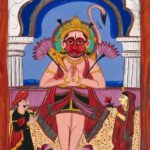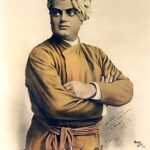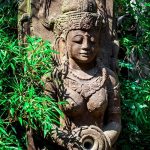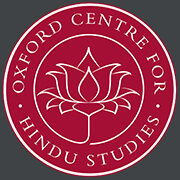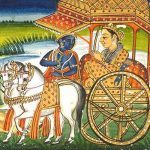Mahabharata: India’s Epic
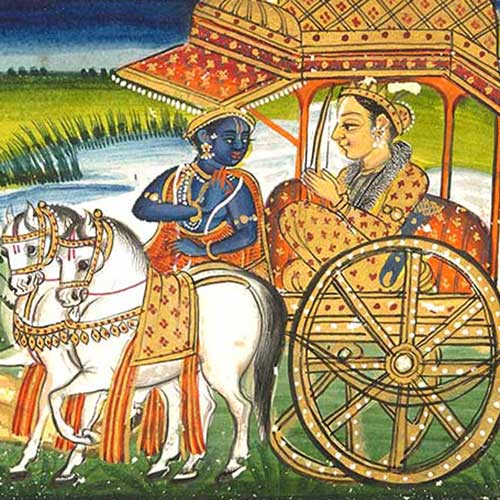
Mahābhārata is an ancient Sanskrit epic story that has played a huge role in the formation of Hinduism as we know it today. It is truly a vast work that presents an amazing story with many different strands and subplots as well as extensive passages of religious, philosophical, moral, and practical instruction. Interestingly, the Mahabharata is actually an epic poem, but is often referred to as a story because of its length – it’s the longest known epic poem ever written, consisting of over 200,000 individual lines.
Studying the story of Mahabharata is a fantastic way to understand the formation of Hinduism with guidance from our team of expert tutors. In this course, you will learn the story and characters of Mahābhārata. We will also delve into the role of the divine in worldly matters and explore concepts of dharma.
You won’t just learn about the content of the text, you’ll also look at other points, including its importance in the context of Hinduism itself. You’ll be answering crucial questions about the text: What sort of text this is? Who wrote it and when? What is it really about? What is its principal role in the religious, cultural, and social life of India?
This course is produced and presented by Dr Nick Sutton of the Oxford Centre for Hindu Studies, who has spent the past four decades studying, teaching, and writing on Mahābhārata.
Start Date: 12 October 2025
Late enrolments still open for a limited time
Course Duration: Seven Weeks
255 pages
On-Demand Video
The main video component of your course. On-demand means you can watch at the time that suits you.
7hr 47min
Community Discussions
These free Zoom sessions are not part of your main course materials. They are led by OCHS-affiliated scholars and open to students enrolled in any course.
Explore other areas of Hindu studies! Meet tutors and students from other courses!
Monday, 20 October, 4pm
Tuesday, 28 October, 3pm
Wednesday, 5 November, 3pm
Thursday, 13 November, 5pm
Sunday, 23 November, 6pm
These are all UK times. Recordings are available for any sessions you miss
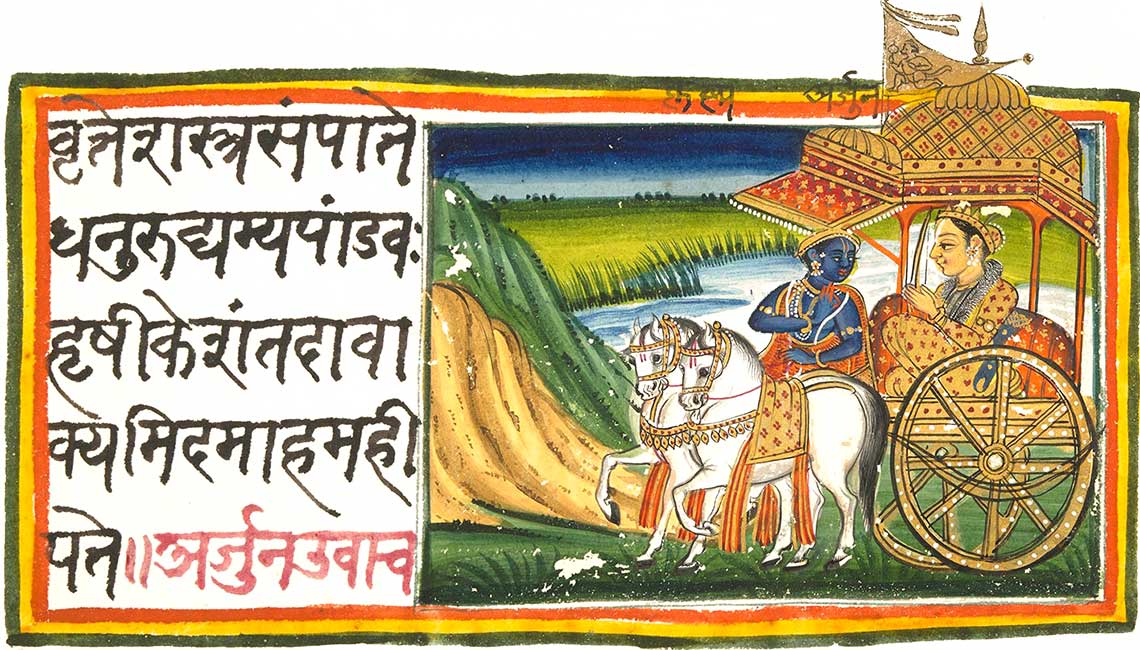
Session One: Overview of the Mahābhārata
We begin by giving a sense of the size and scope of the Mahābhārata. This is truly a vast work that not only presents a complex narrative with many different strands and subplots, but also extensive passages of religious, philosophical, moral, and practical instruction.
Here we provide an outline of the text by presenting a review of all of its eighteen parvans (limbs or sections). What sort of text this is? Who wrote it and when? What is it really about and what are its principal roles in the religious, cultural, and social life of India?
Session Two: Who’s Who in the Mahābhārata
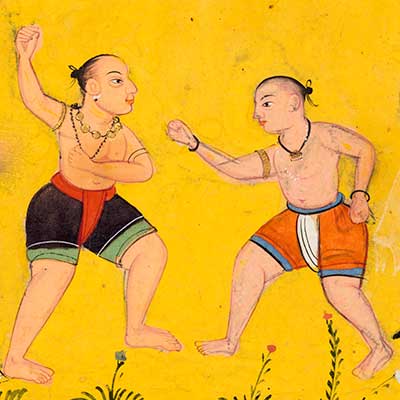
Mahābhārata highlights its central truths through complex characterisations: some virtuous and admirable individuals and others bereft of elevated human instincts.
By placing each character in a range of situations it shows the problems, tensions, and genuine dilemmas we all face in seeking to attain the fullness of our humanity. The main characters we look at here are:
- Arjuna
- Bhīma
- Nakula
- Sahadeva
- Bhīṣma
- Karṇa
- Droṇa
- Aśvatthāman
- Duḥśāsana
- Śakuni
- Jayadratha
- Kīcaka
- Drupada
- Virāṭa
- Śalya
- Sātyaki
Session Three: The Women of the Mahābhārata
Women have a central role in the Mahābhārata. We look at teachings on gender roles, specifically the dharma of women. We contrast the text’s ideas on female dharma with the actions of the three principal female characters: Draupadī, Gāndhārī, and Kuntī.
Session Four: The Divine Identity
The Mahābhārata is a deeply spiritual account of divine intervention in the world.
We explore how divine nature and identity are presented within the text, with the focus on Kṛṣṇa as an avatāra of Viṣṇu. Mahābhārata is one the earliest remaining works of Vaiṣṇava theism, and in this session we look at the Vaiṣṇava doctrines it presents to its readers.
We will also see the role of Śiva in the narrative and the nature of the relationship between Viṣṇu and Śiva.
We conclude with a look at monotheism, monism, and polytheism within Indian religion as a whole, as well as the understanding that liberation from rebirth is attained not just through personal enlightenment, or yogic perfection, but also as a gift of divine grace.
Session Five, Dharma in the Mahābhārata
Dharma is arguably the principal theme of the Mahābhārata and is discussed at length in a number of passages. In this session we develop a clear definition of the term ‘dharma’.
The wise say that dharma is whatever is based on love for all beings.
This is the characteristic mark that distinguishes dharma from adharma, Yudhiṣṭhira.
(Mahābhārata, 12.251.24)
Session Six: Religious Philosophy in the Mahābhārata
Religious, ethical, and practical instruction collectively comprise almost half the chapters in the Mahābhārata. And it is after the battle is over that the Mahābhārata takes the form of a didactic work. Within the 353 chapters of the Śānti-parvan (Book 12), 185 chapters (168–353) form what is known as the Mokṣa-dharma-parvan. It is to this collection of religious and philosophical discourses that we will be turning our attention to.
Session Seven: The Anuśāsana
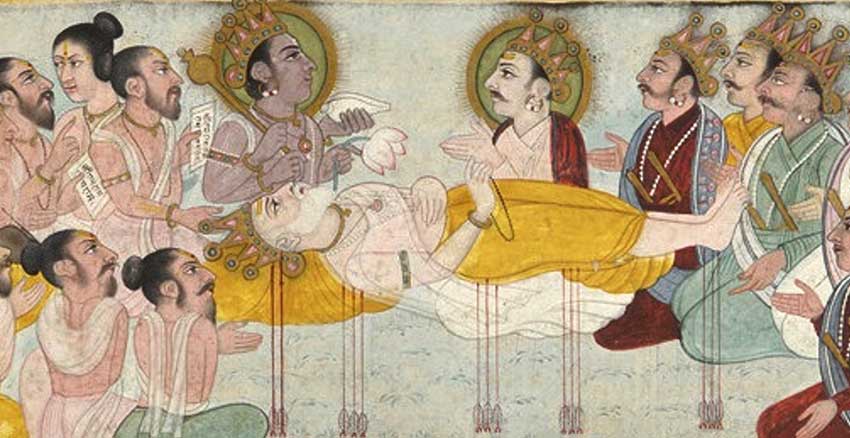
For this final session we move to the thirteenth book of the Mahābhārata, the Anuśāsana–parvan. Here we find a continuation of the extensive forms of instruction imparted by Bhīṣma to Yudhiṣṭhira that covered almost all of the Śānti-parvan, though here the topics considered are far more varied.
Associated Courses
Your Tutor

Dr Raj Balkaran
Dr Raj Balkaran is a scholar of Sanskrit narrative texts and the author of The Goddess and the King in Indian Myth (Routledge 2018), The Goddess and the Sun in Indian Myth (Routledge 2020). Having taught comparative religion and mythology at the University of Toronto School of Continuing Studies for a decade, he now Tutors at the Oxford Centre for Hindu Studies where he also serves on the Continuing Education Department’s Course Development Board. Alongside his academic training, he has received extensive spiritual training as part of an oral tradition dedicated to the transmission of Indian wisdom teachings. Integrating his academic and spiritual training, he has founded the online School of Indian Wisdom where he designs and delivers original online courses centred on the practical life wisdom to be found in the philosophical, mythological and spiritual traditions of ancient India. Beyond teaching and research, Dr Balkaran runs a thriving life consulting practice and hosts the New Books in Indian Religions podcast.
